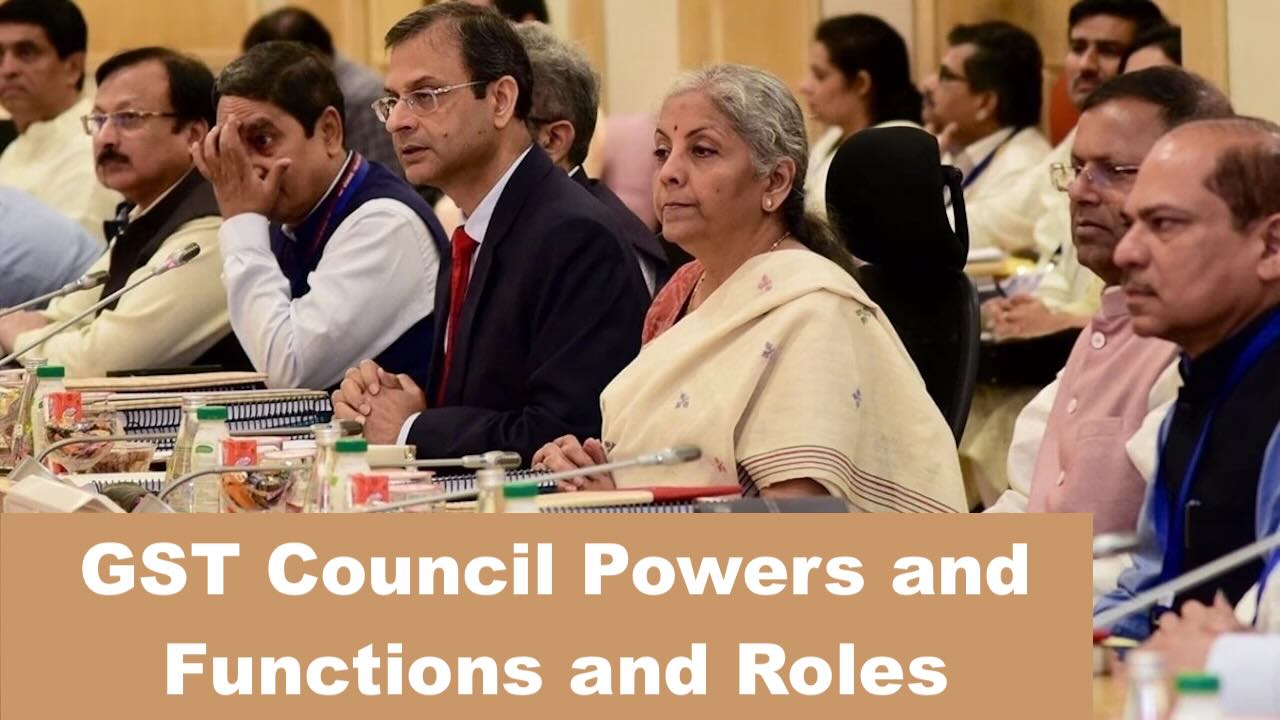GST Council: According to Article 279A of the Constitution, the GST Council has to be constituted by the President within 60 days of the commencement of Article 279A. As per Article 279A of the Constitution of India, the President of India is empowered to constitute Goods and Services Tax Council. The President of India constituted the GST Council on 15th September 2016.
The GST Council shall consist of Union Finance Minister as a Chairperson, Union Minister of State in charge of Finance as a member, the State Finance Minister or State Revenue Minister or any other Minister nominated by each State as a member of the Council. The GST Council shall select one of them as Vice Chairperson of the Council. Must Check List of Top 20 CA Firms in India.
The duty of the Council is to make recommendations to the Union and the States. It has been provided in the Constitution (one hundred and First Amendment) Act, 2016 that the GST Council, in its discharge of various functions, shall be guided by the need for a harmonized structure of GST and for the development of a harmonized national market for goods and services.
Quick Links
Goods and Service Tax Council (GSTC)
In the GST Council a decision is taken by a three-fourth majority with the Centre having a one-third vote and the states the remaining two-third.
The mechanism of the GST Council would ensure harmonisation on different aspects of GST between the Centre and the States as well as among States. It has been provided in the Constitution (101st Amendment) Act, 2016 that the GST Council, in its discharge of various functions, shall be guided by the need for a harmonized structure of GST and for the development of a harmonized national market for goods and services.
Functions of the GST Council
Functions of the GST Council seeked to include making recommendations on:
- taxes, cesses, and surcharges levied by the Centre, States and local bodies which may be subsumed in the GST;
- goods and services which may be subjected to or exempted from GST;
- Model GST laws, principles of levy, apportionment of IGST and principles that govern the place of supply;
- threshold limit of turnover below which goods and services may be exempted from GST;
- rates including floor rates with bands of GST;
- special rates to raise additional resources during any natural calamity;
- special provision with respect to Arunachal Pradesh, Jammu and Kashmir, Manipur, Meghalaya, Mizoram, Nagaland, Sikkim, Tripura, Himachal Pradesh and Uttarakhand; and
- any other matters
Members of GST Council:
The GST Council is a joint forum of the Centre and the States, and consists of the following members:
- Chairperson- Union Finance Minister
- Vice chairperson- to be chosen from amongst the members of Ministers of State government
- Members-
- (a) The Union Minister of State, in-charge of Revenue/Finance
- (b) The Minister In-charge of finance or taxation or any other Minister nominated by each State Government
Power of GST council only recommendatory in nature:
The GST Council recommends the GST rate structure for various goods and services. This includes setting tax slabs (like 5%, 18%, 28%) and deciding which items should be exempted from GST altogether.
As per Article 279A (4), the Council will make recommendations to the Union and the States on important issues related to GST, like
- a) The goods and services that may be subjected or exempted from GST.
- b) Principles that govern the Place of Supply.
- c) Threshold limits.
- d) GST rates including the floor rates with bands, special rates for raising additional resources during natural calamities/disasters or RNR
- e) Special provisions for certain States, etc.
- f) Transition Provisions
Quorum for GST Council Meetings
- The quorum of the GST council is 50% of total members
- Decision is taken by 3/4th majority (75%), wherein-
- (a) the Central Government would have the weightage of 1/3rd of the total vote cast, and
- (b) the State Governments would have a weightage of 2/3rd of the total votes cast
Functions of the GST Council
GST Council is basically entrusted with task to make recommendations on the different aspects of GST to the Union as well as states.
GST Council under the Constitution is required to make recommendations on the following:
- (a) the taxes, cesses and surcharges which may be subsumed in the goods and services tax;
- (b) the goods and services that may be subjected to, or exempted from the goods and services tax;
- (c) model GST Laws, principles of levy, apportionment of IGST and the principles that govern the place of supply;
- (d) the threshold limit of turnover below which goods and services may be exempted from goods and services tax;
- (e) GST rates including floor rates;
- (f) any special rates for a specified period, to raise additional resources during any natural calamity or disaster;
- (g) special provision with respect to the States of Arunachal Pradesh, Assam, Jammu and Kashmir, Manipur, Meghalaya, Mizoram, Nagaland, Sikkim, Tripura, Himachal Pradesh and Uttarakhand; and
- (h) any other matter relating to the GST, as the Council may decide.
The GST Council shall also recommend the date on which GST will be levied on petroleum crude, high speed diesel, motor spirit (commonly known as petrol), natural gas and aviation turbine fuel.

